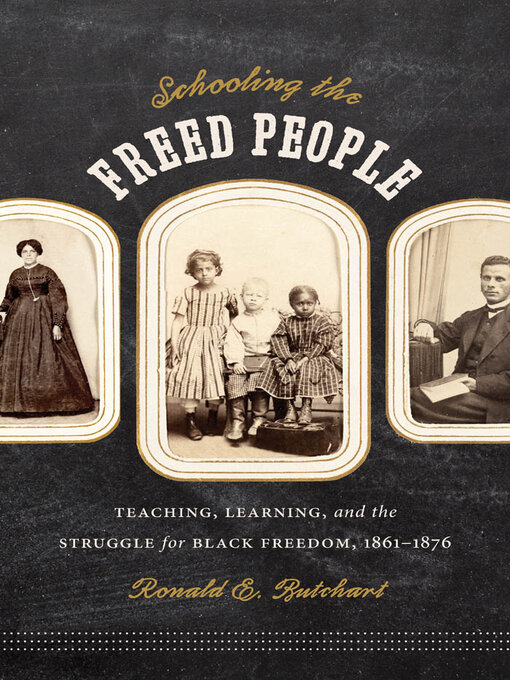- All Magazines
- Popular Magazines: Always Available
- Cooking and Food Magazines
- Craft Magazines
- News and Politics
- See all magazines collections
Schooling the Freed People
Teaching, Learning, and the Struggle for Black Freedom, 1861-1876
-
Creators
-
Publisher
-
Release date
February 1, 2013 -
Formats
-
Kindle Book
-
OverDrive Read
- ISBN: 9781469604930
- File size: 2864 KB
-
EPUB ebook
- ISBN: 9781469604930
- File size: 2864 KB
-
-
Languages
- English
-
Reviews
-
Library Journal
September 1, 2010
Schooling so long denied slaves became one of ex-slaves' strongest desires. It also represented what sympathetic, though often condescendingly paternalistic, whites thought blacks most needed to advance from slavery. Thousands hearkened to the call to teach freed people. Butchart (history & education, Univ. of Georgia; Northern Schools, Southern Blacks, and Reconstruction) has devoted a productive career to identifying what schools arose when and where for blacks in the South; under whose auspices; with what announced mission, methods, and curricula; and who taught what to which blacks for how long. Here, he masterfully caps his research and writing based on a meticulously constructed database identifying about 11,600 teachers in Southern black schools from 1861 through 1876. He documents the larger than previously acknowledged role of blacks who tended their own as one in three of all teachers in freed people's schools. He further exposes the clash between teachers' views and students' visions for their education and themselves, especially in the context of oppressive white supremacy. VERDICT This work promises to long be a touchstone for scholars and students of post-Civil War black education, of Reconstruction broadly, and of blacks' transition to actual freedom.--Thomas J. Davis, Arizona State Univ., Tempe
Copyright 2010 Library Journal, LLC Used with permission.
-
Formats
- Kindle Book
- OverDrive Read
- EPUB ebook
subjects
Languages
- English
Loading
Why is availability limited?
×Availability can change throughout the month based on the library's budget. You can still place a hold on the title, and your hold will be automatically filled as soon as the title is available again.
The Kindle Book format for this title is not supported on:
×Read-along ebook
×The OverDrive Read format of this ebook has professional narration that plays while you read in your browser. Learn more here.

